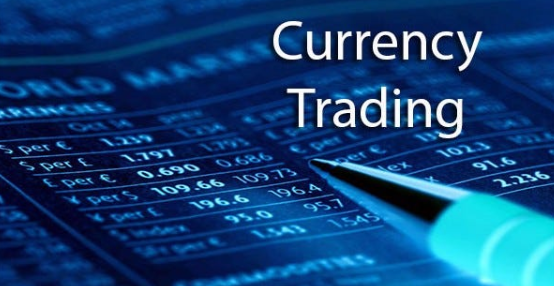Currency Trading and Its Scope in Global Financial Markets

Currency trading, also known as foreign exchange (Forex or FX) trading, is one of the largest and most liquid markets in the world. The Forex market operates on a global scale, facilitating the exchange of currencies between countries, businesses, financial institutions, and individuals. With a daily trading volume exceeding $7 trillion, currency trading plays an indispensable role in the global financial infrastructure. Its scope has grown rapidly in recent years, driven by technological advancements, increased financial interconnectivity, and the expanding interests of diverse stakeholders.
In this article, we will delve into the fundamentals of currency trading, its significance in the global economy, and the role of stakeholders in shaping its dynamics.
What is Currency Trading
At its core, currency trading involves the buying and selling of one currency in exchange for another. Currencies are traded in pairs, such as EUR/USD (Euro to US Dollar) or GBP/JPY (British Pound to Japanese Yen), and their values fluctuate based on geopolitical, economic, and market sentiment factors. For example, if the value of the Euro strengthens against the US Dollar, the price of the EUR/USD pair increases, allowing traders to profit from price differences during buy and sell orders.
The Forex market operates 24 hours a day, five days a week. It is decentralized, meaning it doesn’t rely on a central exchange but rather exists as an over-the-counter (OTC) market where transactions are conducted directly between participants via electronic trading platforms, banks, and brokers.
Scope of Currency Trading in Global Financial Markets
Currency trading occupies a central position in the global financial ecosystem, influencing trade, investments, and macroeconomic stability. Its scope spans multiple dimensions.
1. Facilitating International Trade
Currency trading enables businesses to conduct cross-border commerce by converting one currency into another. Importers and exporters rely on the Forex market to hedge against exchange rate risks and ensure smooth transactions. For example, a US-based company importing goods from Germany must convert US Dollars into Euros to pay vendors. Without the Forex market, international trade would be fraught with inefficiencies.
2. Supporting Global Investments
Investors need to exchange currencies when investing internationally. Whether it’s a company issuing bonds in a foreign currency, an individual buying shares in an overseas stock market, or a fund manager allocating assets across borders, currency trading is a foundational mechanism that allows international investments to flourish.
Moreover, stakeholders like asset managers often use Forex trading as a hedging tool to mitigate exchange rate risks associated with investments in foreign markets.
3. Promoting Economic Stability
Central banks play a crucial role in currency trading by monitoring and managing foreign exchange reserves and stabilizing their national currencies. Currency interventions, such as devaluations or revaluations, are used by governments to influence trade balances, inflation rates, and overall economic growth. A stable currency reduces trade volatility and fosters long-term economic development.
4. Contribution to Speculative Trading
Aside from commercial use, Forex markets attract millions of speculative traders globally. Speculative currency trading focuses on profiting from short-term price movements of currency pairs. Retail traders, institutional investors, and hedge funds actively participate in this segment, often leveraging significant amounts of capital to amplify gains (or losses). The high liquidity and volatility of Forex markets make it an appealing choice for traders seeking quick returns.
5. Technology-Driven Growth
The scope of currency trading has expanded significantly due to advancements in technology. Automated trading platforms, algorithms, and artificial intelligence have revolutionized Forex markets, providing traders with faster execution speeds, enhanced analytical tools, and real-time access to market data. Stakeholders—ranging from brokerages to retail investors—benefit from user-friendly platforms and mobile apps that simplify currency trading for even novice participants.
Key Stakeholders in Currency Trading
The Forex market is shaped and influenced by a diverse set of stakeholders, all of whom play a pivotal role in its functioning.
1. Central Banks
Central banks, such as the Federal Reserve (USA) or the European Central Bank (ECB), are among the most influential stakeholders. They indirectly drive currency prices through monetary policies, interest rate decisions, and interventions in foreign exchange markets. Central banks act to stabilize their national currencies and ensure economic security, often influencing Forex markets on a macro level.
2. Commercial Banks
Commercial banks facilitate currency trading by providing their customers access to Forex transactions. They serve as intermediaries between smaller participants and larger institutional players. Banks are also significant direct participants in the Forex market, with proprietary trading desks managing their own portfolios for profit.
3. Institutional Investors
Institutional investors such as pension funds, hedge funds, private equity firms, and mutual funds engage in currency trading to diversify portfolios, hedge risks, or explore arbitrage opportunities. These stakeholders often operate with large capital volumes and utilize advanced tools to maximize returns while minimizing exposure to risks posed by fluctuating currency prices.
4. Retail Traders
Retail traders represent a growing segment of Forex market participants, empowered by technological advancements and lower barriers to entry. Individuals use online platforms provided by brokers to trade currency pairs, often deploying strategies like day trading or swing trading. Though retail traders represent a smaller portion of total market volume compared to institutions, their numbers have been growing steadily over the years.
5. Corporations and Multinationals
Businesses operating globally rely on currency trading for both operational and strategic purposes. They use Forex markets to pay international suppliers, receive payments from global customers, and hedge against foreign exchange risks that could affect profitability. Large corporations are active stakeholders with a vested interest in stable exchange rates.
6. Regulators
Regulatory bodies such as the Commodity Futures Trading Commission (CFTC) and the European Securities and Markets Authority (ESMA) oversee Forex trading activities to maintain transparency, prevent fraud, and ensure fair practices. They are critical in managing systemic risks and protecting retail investors.
Risks and Challenges in Currency Trading
While the scope of currency trading is expansive, participants must navigate risks such as volatile price movements, geopolitical uncertainties, and leverage-related losses. A single economic or political event can drastically impact currency values, making risk management paramount for all stakeholders.
Moreover, retail traders often face challenges like lack of experience, emotional decision-making, and exposure to unethical brokers. Education, risk assessments, and due diligence are essential to succeeding in this dynamic market.
Conclusion
Currency trading serves as the backbone of the global financial system, facilitating international trade, investments, and economic stability. Its scope continues to widen as new technologies democratize access and stakeholders—from retail traders to central banks—expand their roles within the Forex market. Despite inherent risks, currency trading offers opportunities for diversification, speculation, and portfolio growth.
By understanding the market’s intricacies and engaging responsibly, stakeholders can harness the immense potential of currency trading as a powerful financial tool in the global economy. With continuous innovation and increased awareness, Forex trading is poised to remain a cornerstone of global financial markets for years to come.







